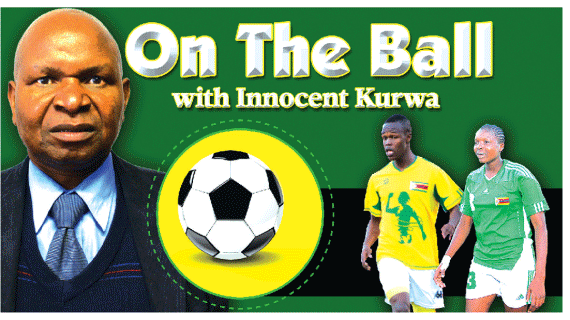
BY AND LARGE the newly-elected local authorities are in place following the election of mayors and their deputies.
-Innocent Kurwa
Now the serious business of service delivery begins — if, of course, councillors have, in electing mayors and deputies, remained true to party instructions, otherwise the politicking will go on at the expense of service delivery.
Among the many social ills the country is suffering from today is a problem of youths and children roaming the streets all day idle especially in high -density suburbs.
This scenario is typical of any urban settlement in Zimbabwe and it is in addressing this particular social ill that sport and service delivery link and play a complementary role to each other.
The lack of sport facilities while generally widespread is, however, particularly acute in high-density suburbs.
This idleness has created its own social problems, among them drug-taking, drinking, promiscuity and petty crimes.
Each of these ills in turn has its own unwanted outcomes like the spread of HIV and Aids, addiction, prostitution and even poor performance at school.
- Chamisa under fire over US$120K donation
- Mavhunga puts DeMbare into Chibuku quarterfinals
- Pension funds bet on Cabora Bassa oilfields
- Councils defy govt fire tender directive
Keep Reading
In fact, such social ills have so many resultant problems a cycle of deviant behaviour is created and this eventually leads to ruined livelihoods and a cycle of poverty.
In the long run the country ends up spending millions of dollars — money it needs desperatley— and which could be spent better somewhere else in addressing related and resultant market failures by having to build more correctional homes for young people and even jails and so on!
In short, what is today a seemingly small issue of idleness in a township street develops, in the long run, to something national and requiring a lot more resources to address.
Therefore, local authorities, especially city councils, have a lot to do in harnessing social decadence and, in the process, creating a bright future for both direct recipients, the youths and society at large.
Suburbs in the past used to boast wide range of social amenities that were of a sport nature, especially swimming pools.
In the case of Bulawayo, the city had swimming pools in places such as Barbourfields — on the western end of the football stadium — Mpopoma, Luveve and North End.
There were also several youth centres, some of them boasting tennis and basketball courts.
In addition, especially in the 1990s, we also had rugby pitches as well as recreational parks where families could spend an afternoon together.
Unfortunately, all these facilities — including even the Centenary Park — are dilapidated and run-down so badly they are no longer useful and quite a number of them have even been closed down leaving our suburbs and cities shorn of places for recreation and entertainment.
The biggest losers are the children, especially those in the high-density suburbs where most parents struggle to make ends meet.
Almost all of these children roam the dust bowls that our streets in the high-density suburbs are today and, here and there, entertain themselves to a game of football or all sorts of games using stones — umamtshayana, sqobingo, ma25, pada and tsoro for example.
There is also the usual rope skipping, but all these in the end become boring and add very little, if any, value to the social and physical development of the children.
Of course, they get tired, but this does not inculcate lasting endurance of any nature.
Swimming pools, youth clubs and even football grounds, apart from keeping a lot of children off the streets, also inculcate skills that are very handy throughout life and in today’s world where sport is big business, a way of earning a livelihood — as a swimmer or footballer, for example.
Facilities would also help take youths and children away from just being idle — “an idle brain is the devil’s workshop”, goes one English adage.
Resuscitating these facilities, including the many football grounds that are now dustbowls — Matshobana and Njube to mention just two — would also promote fitness and healthy bodies in the youths and children.
Today’s diet in most cases leads to obesity of one level or another and these facilities would tremendously help in giving residents somewhere to shed off their excess fat!
More importantly is that bringing back our swimming pools will benefit both the individual and the country in an immense way.
Swimming is powerful, so to speak. Children and the youths learn all the different ways of swimming — backstroke, breaststroke, butterfly and freestyle of course!
Some of them could emerge as stars like Kirsty Coventry. In addition, swimming, apart from promoting a healthy body, teaches life-saving skills that remain handy all life.
Another benefit we will certainly reap from resuscitating sport and recreational facilities is that our children would surely perform better at school.
Educational psychologists say there is a positive link between a healthy body, mind and performance in class and even the Italian painter, sculptor and architect Leonardo da Vinci, knew this as he coined the proverb, “Just as iron rusts from disuse, even so does inaction spoil the intellect.”
Our youths and children will certainly turn away from crime and insidious deeds — albeit not necessarily all of them — if they have at their disposal avenues of expending their high amounts of energy.
These facilities also help in reducing misery and they offer an avenue for turning to alternatives that are better than just thinking of our sad times or difficulties.
“Idleness is many gathered miseries in one name”, German novelist and humourist Jean Paul says.
The new Sport ministry should work together with local authorities and the Social Services ministry (or Welfare) as well as the plethora of non-governmental organisations that focus on children and the youths as well as religious denominations in resuscitating sport and recreational facilities, especially swimming pools.










